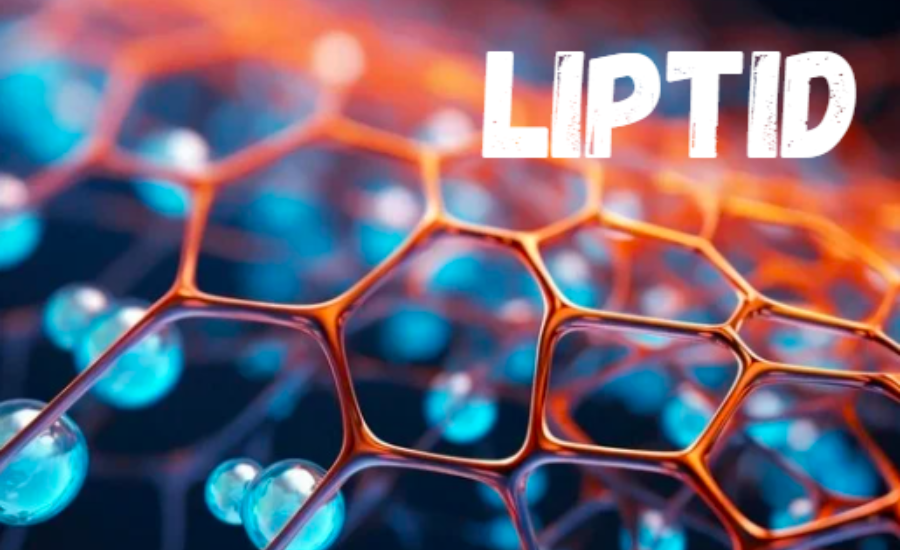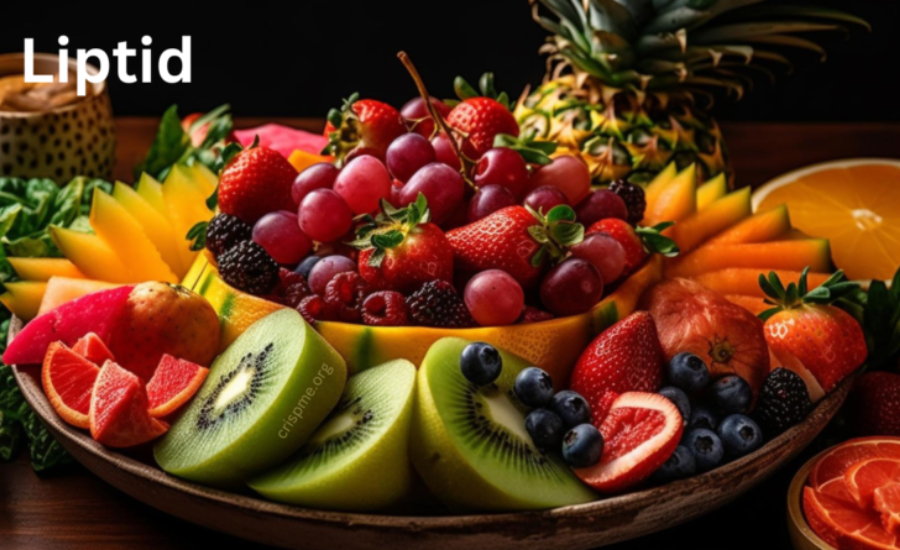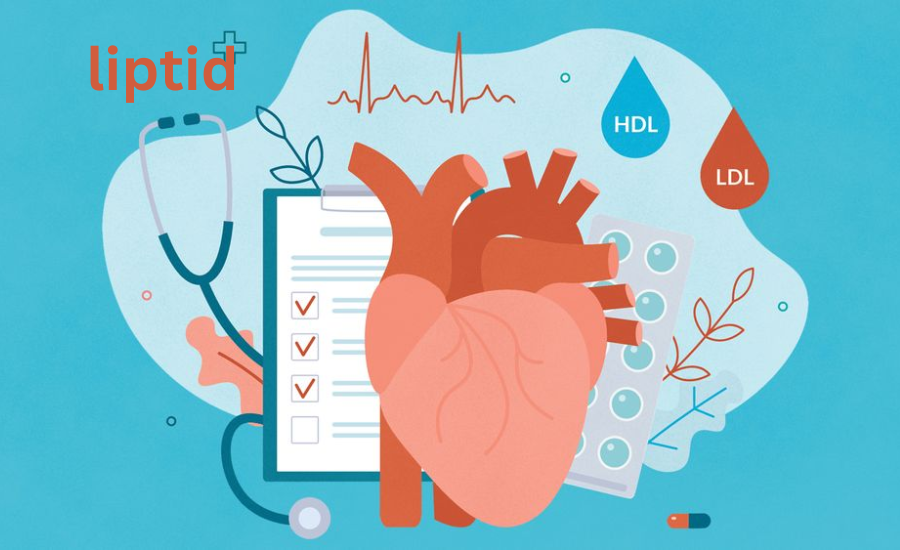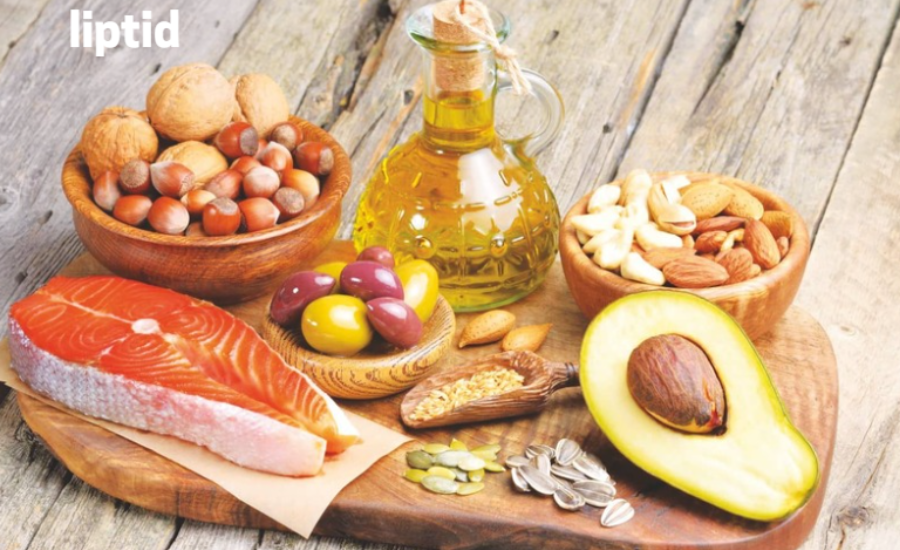In the ever-evolving world of health and wellness, understanding the essential components that contribute to our well-being is crucial. One such component is lipids—a term that encompasses the diverse and vital group of molecules known as lipids. This article delves into the multifaceted roles of lipids, exploring their types, functions, and incredible benefits for our bodies and overall health.
What Are Liptid?

Liptid, commonly referred to as lipids, are a structurally diverse group of organic molecules that play vital roles in cellular processes across all living organisms. From providing energy storage to forming cell membranes and acting as signaling molecules, Liptids are indispensable to life.
Types of Liptid
Liptid are found in various forms, each with unique functions and benefits:
- Fats: Typically solid at room temperature, fats are a primary energy storage form. They are essential for providing long-term energy reserves.
- Oils: Liquid at room temperature, oils are another crucial energy source and play a role in nutrient absorption.
- Waxes: These lipids provide protective barriers in both plants and animals.
- Phospholipids: Essential components of cell membranes, phospholipids help maintain cell structure and function.
- Steroids: Including hormones like testosterone and estrogen, steroids are involved in various regulatory processes in the body.
- Vitamins: Certain vitamins, such as A, D, E, and K, are lipid-soluble and play critical roles in health.
Functions of Liptid

Energy Storage and Supply
Lipids are a primary source of energy. They store more than twice the energy per gram compared to carbohydrates and proteins, making them an efficient energy reserve.
Structural Components
Phospholipids and cholesterol are fundamental components of cell membranes. They provide structural integrity and fluidity, which are crucial for cell function and communication.
Insulation and Protection
Fats serve as insulating materials in the body, protecting organs and maintaining body temperature.
Signaling Molecules
Certain lipids act as signaling molecules, regulating physiological processes such as inflammation, immune response, and cell growth.
Health Benefits of Liptid

Heart Health
Omega-3 fatty acids, a type of lipid, are known for their heart-protective properties. They help reduce inflammation, lower blood pressure, and decrease the risk of heart disease.
Brain Function
Lipids, particularly omega-3 fatty acids, are essential for brain health. They support cognitive function, memory, and overall mental health.
Nutrient Absorption
Fat-soluble vitamins (A, D, E, and K) rely on lipids for absorption. Without adequate lipids, the body cannot efficiently absorb these essential nutrients.
The Role of Liptid in Diet
Incorporating healthy lipids into the diet is vital for overall health. Sources of beneficial lipids include:
- Fish: Rich in omega-3 fatty acids.
- Nuts and Seeds: Provide essential fatty acids and other nutrients.
- Avocados: High in monounsaturated fats.
- Olive Oil: A source of healthy fats and antioxidants.
Nutritional Sources of Liptid

Healthy sources of Liptid include fatty fish, nuts, seeds, avocados, and olive oil. Incorporating these foods into your diet provides essential nutrients that support overall health.
Fatty fish, such as salmon, mackerel, and sardines, are rich in EPA and DHA, types of omega-3 fatty acids that are crucial for heart and brain health. Regular consumption of these fish can help reduce inflammation, lower blood pressure, and improve overall cardiovascular health.
Nuts and seeds, including walnuts, almonds, flaxseeds, and chia seeds, are excellent sources of healthy fats, protein, and fiber. These nutrient-dense snacks provide a substantial dose of omega-3 fatty acids and other beneficial nutrients that support a healthy diet. They are also convenient and easy to incorporate into meals or enjoy on their own as snacks.
Avocados are another fantastic source of Liptids, particularly monounsaturated fats, which are known for their heart-protective properties. Adding avocados to salads, sandwiches, or smoothies can boost your intake of these beneficial fats and provide a creamy texture and delicious flavor.
Olive oil is a cornerstone of healthy eating, especially in Mediterranean diets. Rich in monounsaturated fats, olive
Future Prospects and Research in Liptid Science

Ongoing research in lipid science is continually unveiling new benefits and applications for lipids, positioning them as a focal point for future health innovations. Advances in our understanding of lipid metabolism and functions are opening doors to groundbreaking health solutions and therapies.
One promising area of research is the development of superior drug delivery systems using lipids. Lipid-based carriers can enhance the delivery of drugs to specific cells or tissues, increasing the efficacy and reducing side effects of treatments. This approach is particularly relevant in cancer therapy, where targeted delivery can significantly improve patient outcomes.
In the realm of dietary supplements, future research may lead to the creation of more effective and bioavailable lipid-based formulations. Enhanced lipid supplements could better support heart health, cognitive function, and overall wellness by ensuring that essential fatty acids and other nutrients are more efficiently absorbed by the body.
The skincare industry is also poised to benefit from ongoing lipid research. Innovations in lipid-based skincare products are expected to provide more effective solutions for maintaining skin hydration, reducing inflammation, and protecting against environmental damage. These advancements could lead to the development of new products that offer superior benefits for skin health and appearance.
Furthermore, the potential for lipids to improve health extends to novel therapeutic applications. Research into the anti-inflammatory and immunomodulatory properties of lipids could pave the way for new treatments for chronic inflammatory diseases, autoimmune disorders, and metabolic conditions.
The vast and exciting potential of lipids in health and industry applications underscores the importance of continued research and investment in this field. As we deepen our understanding of lipid science, we can look forward to innovative solutions that enhance health, improve quality of life, and drive advancements across multiple industries.
FAQs About Liptid and Their Role in Health
1. What are lipids, and why are they important?
Lipids, also known as fats, are a diverse group of organic molecules essential for various bodily functions, including energy storage, cell membrane structure, and signaling. They play critical roles in maintaining overall health and wellness.
2. What are the different types of lipids?
The main types of lipids include fats, oils, waxes, phospholipids, steroids, and fat-soluble vitamins (A, D, E, and K). Each type has unique functions and benefits for the body.
3. How do lipids contribute to energy storage?
Lipids store more than twice the energy per gram compared to carbohydrates and proteins, making them an efficient energy reserve. They provide long-term energy storage that the body can utilize when needed.
4. What role do lipids play in cell membranes?
Phospholipids and cholesterol are fundamental components of cell membranes. They provide structural integrity and fluidity, essential for proper cell function and communication.
5. How do lipids support heart health?
Certain lipids, particularly omega-3 fatty acids, have heart-protective properties. They help reduce inflammation, lower blood pressure, and decrease the risk of heart disease.
Conclusion
Lipids, often referred to as fats, are a diverse and essential group of organic molecules that play vital roles in our health and well-being. From energy storage and cell membrane structure to heart and brain health, lipids are indispensable to life. Understanding their types, functions, and benefits can help us make informed dietary choices and appreciate their significance in health and wellness.
The future of lipid science holds exciting prospects, with ongoing research uncovering new benefits and applications. From superior drug delivery systems and enhanced dietary supplements to innovative skincare products, the potential for lipids to improve health and industry applications is vast.
Incorporating healthy lipids into our diet and skincare routines can support overall health, enhance well-being, and drive advancements in health and wellness. As research continues to evolve, we can look forward to innovative solutions that leverage the incredible benefits of lipids, paving the way for a healthier future.
In the ever-evolving world of health and wellness, understanding the essential components that contribute to our well-being is crucial. One such component is lipids—a term that encompasses the diverse and vital group of molecules known as lipids. This article delves into the multifaceted roles of Liptids, exploring their types, functions, and incredible benefits for our bodies and overall health.
Stay in touch for more updates and alerts: Vents Breaking!

